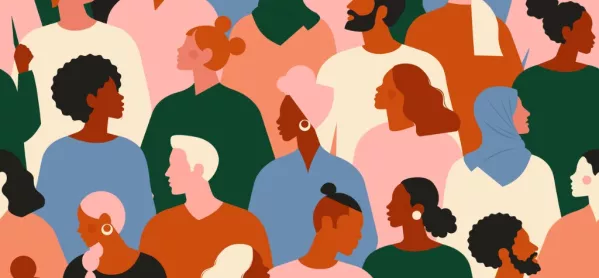12 ways schools can help to tackle racism

I’m tired.
My parent’s experiences, my experiences, my son’s experiences haven’t changed much in the past 60-plus years.
For once, though, we might be on the cusp of real change.
The death of George Floyd and the subsequent protests that have taken place all around the world revealed a righteous rage, not just in the USA but elsewhere - including in the UK.
It would be easy to say, “Racism is rife in America but it’s not so bad here in the UK” - and for many years we have - but this is where we lie to ourselves, where we pretend that Britain isn’t racist. As Dave said at the Brits this year, “the least racist is still racist”.
Now, at last perhaps, we are facing up to this - an overdue but important step.
In the words of American novelist and playwright James Baldwin, “not everything that is faced can be changed but nothing can be changed until it is faced”
Education and the battle against racism
As has been said, education is a key tool in fighting against racism.
And we will need it if we are to truly change our society. We need to make sure that anti-racism is long lasting and beneficial to all of us.
To do that, we need to intentionally embed anti-racism it into our whole-school ecosystems, not just the curriculum - although signing petitions calling for this change is a welcome step, too.
We must review the policies, school values, the curriculum, the training of new teachers and the recruitment processes, especially into senior leadership, to ensure they are fair, balanced and unbiased.
We need greater awareness that every choice you make about the design of people, processes and business influences your culture.
These are, sadly, not new ideas. The Macpherson Report, produced over 20 years ago, showed that cultural diversity within the curriculum is one of the ways to prevent racism.
The Windrush Review recommended that colonial and migration history be taught in schools.
Tough conversations and self-analysis
It is clear that there is much we can do to improve the current situation.
We need to have conversations about race with our colleagues and students. These conversations may be uncomfortable, yet they are necessary. Think “no pain, no gain”.
Listen to the experiences of your colleagues, your friends and your students, without becoming defensive. Be a part of the healing process.
Look at the mental health of black students as they return to school. Not only has their community been disproportionately impacted by Covid-19, they may also require additional support due to racial tensions within the community.
Grief, loss and injustice can derail a person’s character if their needs are not met to restore the imbalance.
Perhaps most deeply, we need to look at ourselves, continuously, around our conscious and unconscious biases.
If you want to do this then Harvard University has done a study on this and has an online test that you can take that measures implicit attitudes and beliefs that people are either “unwilling or unable to report”.
Perhaps the outcomes will help you see why, despite the fact that the four youngest children to take GCSEs in the UK are black children and that the youngest student to attend the University of Oxford is a six-year old called Joshua Beckford from Tottenham, thousands of black children are unfairly expelled from school simply because teachers believe they are trouble.
Black students are also less likely to be entered for higher papers, even when they have the same grades as everyone else.
Biases - unconscious or conscious - exist and need rooting out.
12 practical things you can do
This is a lot to think about, and for all teachers to make a real difference, it can seem hard, but from now, starting today, you can do things to make a difference.
- Call out racism, if you see it.
- Educate yourselves on black history, so that you can educate others.
- Be the facilitator of those meaningful conversations.
- Create book clubs and compulsory reading lists for CPD so you can better understand diverse experiences.
- Work collectively within your department. Share your ideas with other departments and then take them to your headtacher.
- Set up an equalities team in school that reflects the student body.
- Utilise the experience and skills of black alumni, retired teachers and parents as volunteer cultural ambassadors.
- Take the Harvard implicit bias test (see above).
- Be intentional in taking action.
- Be visible.
- Be accountable.
- Be outrageous in your creative thinking.
Understand that nothing will change, unless you do.
Or in the words of Maya Angelou: “Do the best you can until you know better. Then when you know better, do better.”
Suzette McLean has worked in education for 15 years
You need a Tes subscription to read this article
Subscribe now to read this article and get other subscriber-only content:
- Unlimited access to all Tes magazine content
- Exclusive subscriber-only stories
- Award-winning email newsletters
Already a subscriber? Log in
You need a subscription to read this article
Subscribe now to read this article and get other subscriber-only content, including:
- Unlimited access to all Tes magazine content
- Exclusive subscriber-only stories
- Award-winning email newsletters